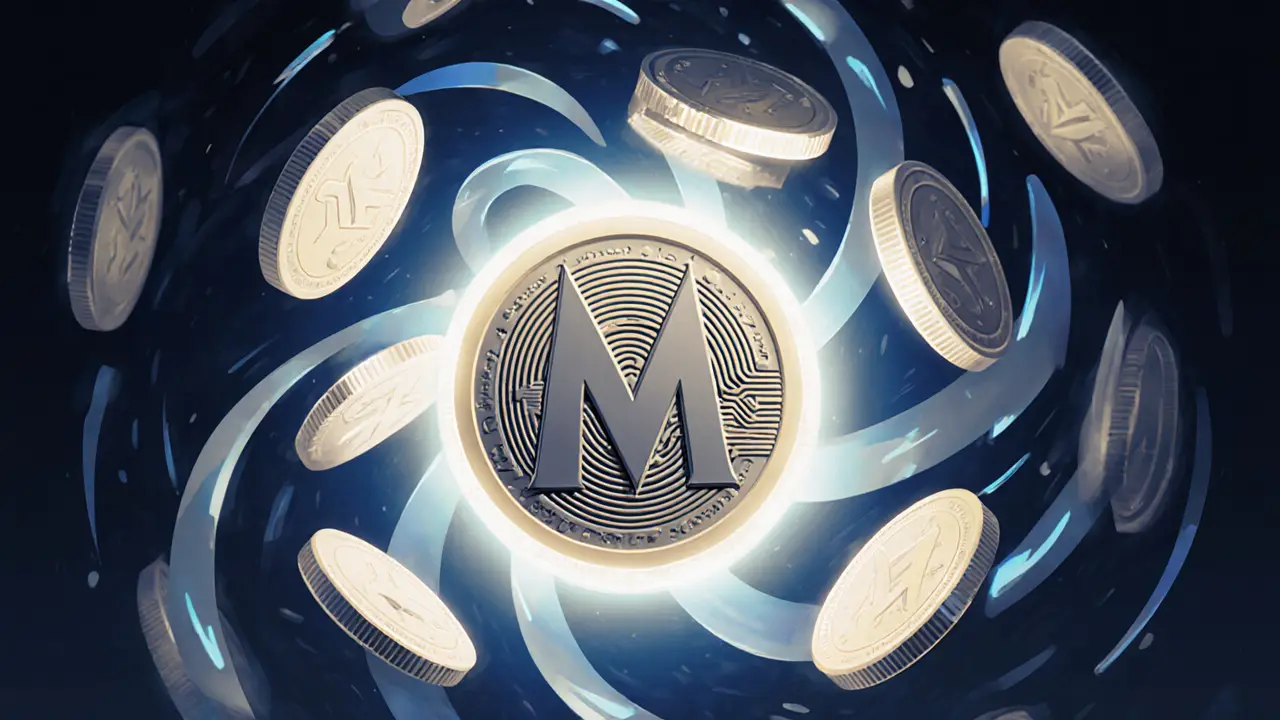Dash Crypto: What It Is, How It Works, and Why It Matters
When you think of Dash, a peer-to-peer digital currency designed for everyday spending with instant transactions and optional privacy. Also known as Digital Cash, it was one of the first cryptocurrencies to focus on usability over speculation. Unlike Bitcoin, which can take minutes to confirm, Dash uses a two-tier network to get payments done in under two seconds. That’s not marketing—it’s how real users actually use it, from buying coffee in Venezuela to sending remittances in Nigeria.
Dash isn’t just another altcoin. It runs on a system called Masternodes, special servers that help secure the network, enable instant transactions, and vote on funding proposals. These aren’t mining rigs—they’re full nodes that require 1,000 Dash as collateral and earn rewards for keeping the network running. That’s why Dash has a built-in treasury: every month, 10% of newly minted coins go to fund development, marketing, or community projects voted on by Masternode owners. It’s like a decentralized startup funding itself, without VCs or board meetings.
Privacy is another big piece. Dash’s PrivateSend, a coin-mixing feature that obscures transaction trails by combining multiple users’ funds. It’s not as strong as Monero’s cryptography, but it’s fast, easy to use, and doesn’t slow down the whole network. For people who want to keep their spending habits private without needing a PhD in cryptography, this matters.
But here’s the truth: Dash isn’t dominating headlines like it did in 2017. Most new users flock to Ethereum or Solana. Yet Dash still powers real-world use cases—especially in places where banks are unreliable or payments are censored. In Argentina, where inflation hits 300%, Dash is used for daily purchases. In parts of Africa, it’s the cheapest way to send money across borders. And unlike meme coins with no team or code, Dash has had the same core developers since 2014.
What you’ll find in the posts below isn’t hype. It’s hard facts about exchanges that support Dash, how to secure it, what happens when governments crack down on privacy coins, and why some platforms quietly drop it while others double down. There are no fake airdrops or empty promises here—just real data on where Dash stands today, who still uses it, and what you need to know before holding or trading it.
What Are Privacy Coins in Cryptocurrency? A Clear Breakdown of How They Work and Why They Matter
Privacy coins like Monero, Zcash, and Dash use advanced cryptography to hide transaction details-unlike Bitcoin, where all transfers are public. They protect financial privacy for journalists, activists, and people in high-inflation economies.
